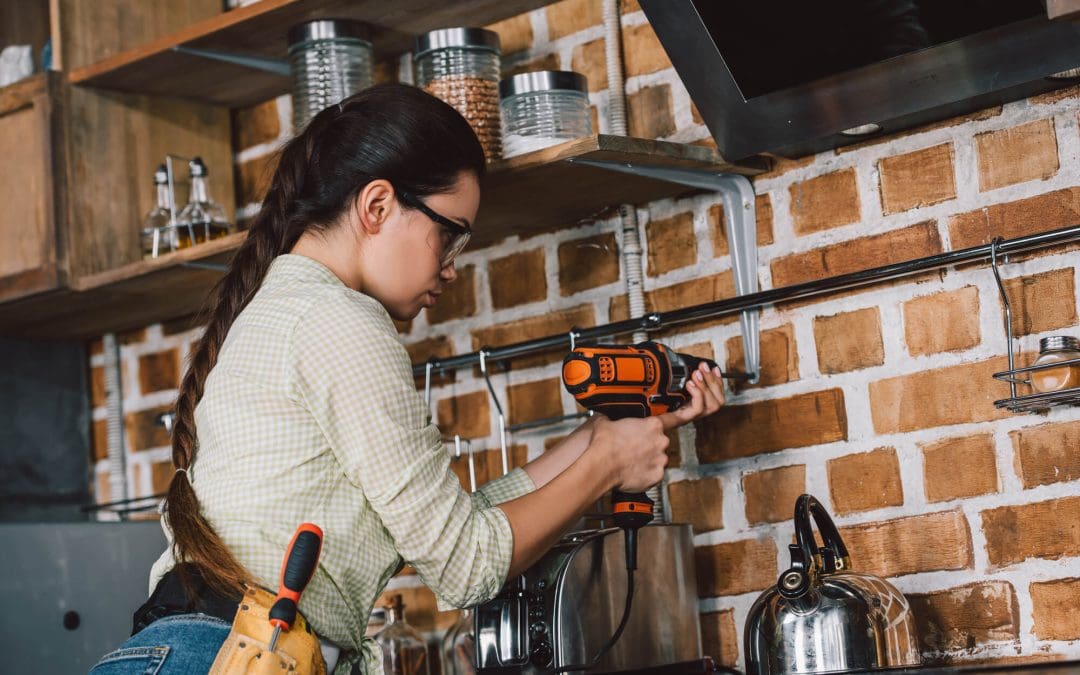When it comes to tackling DIY projects or professional tasks, power tools are indispensable. They speed up the work, bring precision to the tasks, and make tough jobs manageable. Yet, for all their benefits, power tools bring significant safety risks if they aren’t handled with care. Every year, thousands find themselves nursing injuries from mishaps that could have been avoided with proper power tool safety. In this post, we’ll explore how to blend safety with efficiency while using power tools, ensuring that your projects are as safe as they are successful.
Know Your Tools for Power Tool Safety
The first step towards safe tool use is understanding the tool itself. Every power tool has a user manual with guidelines for its safe and effective use. Before you power up, take the time to read the manual. Knowing the capabilities and limitations of power tools sets the stage for safe operation.
Dressing for the Task
Equally important is wearing the right gear. Safety goggles or glasses are a must to protect your eyes from flying particles. For loud tools, ear protection is non-negotiable to safeguard your hearing. Don’t forget a dust mask or respirator if you’re working in a dusty or chemical-laden environment. And when it comes to your clothes, keep it snug—loose clothing and dangling jewelry are hazardous around moving parts.
Setting the Stage
Your work environment plays a pivotal role in your safety. A clean, well-lit workspace is fundamental. Remove any clutter that could trip you up or catch on your equipment. Flammable materials should be kept far from the work area, especially when sparks are a byproduct of your tool’s operation. Always secure your workpiece; a stable platform helps prevent accidents and yields better results.
Tool Integrity and Proper Use
Using power tools as intended is key to your safety. This means resisting the urge to remove safety guards or bypass other built-in safety features. Choose the right tool for the job — don’t compromise or use a tool for something it wasn’t meant to do. Regular maintenance checks are crucial. Before each use, inspect the tool to ensure everything’s in working order.
Focus and Awareness
Maintaining focus while using power tools can’t be overstressed. Only operate tools when you’re well-rested, alert, and sober. Be aware of other people in your workspace and keep a safe distance from them.
Electrical Safety and Power Tool Safety
Handling electricity demands respect. Always use tools with a proper grounding mechanism, and steer clear of water to avoid shocks. Manage cords carefully, avoiding heat, oil, and sharp edges to prevent damage. And remember, when your tool is not in use, disconnect it.
Continuous Learning is Part of Power Tool Safety
The key to mastering power tool safety is continuous learning and adherence to safety practices. Each project might bring different challenges, so being prepared and aware can make all the difference.
By weaving these safety practices into your routine, you ensure that your experience with power tools is both productive and safe. A successful project ends without injury.
Power Tool Safety FAQS
How often should I replace the blades or bits on my power tools?
Replace blades or bits when they show wear or damage, such as dull edges, chips, or visible deformities. Regular replacement ensures optimal performance and safety.
How do I properly store my power tools?
Store power tools in a clean, dry environment to prevent rust and corrosion. Remove batteries from cordless tools before storage, and wrap cords loosely around the tool to avoid bending or kinking.
What should I check for during routine power tool maintenance?
During routine maintenance, check for loose components, signs of wear, and electrical issues. Ensure that moving parts operate smoothly. Lubricate parts as recommended in the tool’s manual.
Can I use an extension cord with my power tools? If so, what kind should I use?
Yes, you can use an extension cord, but ensure it is of appropriate gauge and rating for the power tool’s requirements. Check the tool’s manual for specific cord type and length recommendations to prevent voltage drops and overheating.
HomeSpec offers home inspection services in North Mississippi and Southwest Tennessee. Contact us to schedule an appointment.

